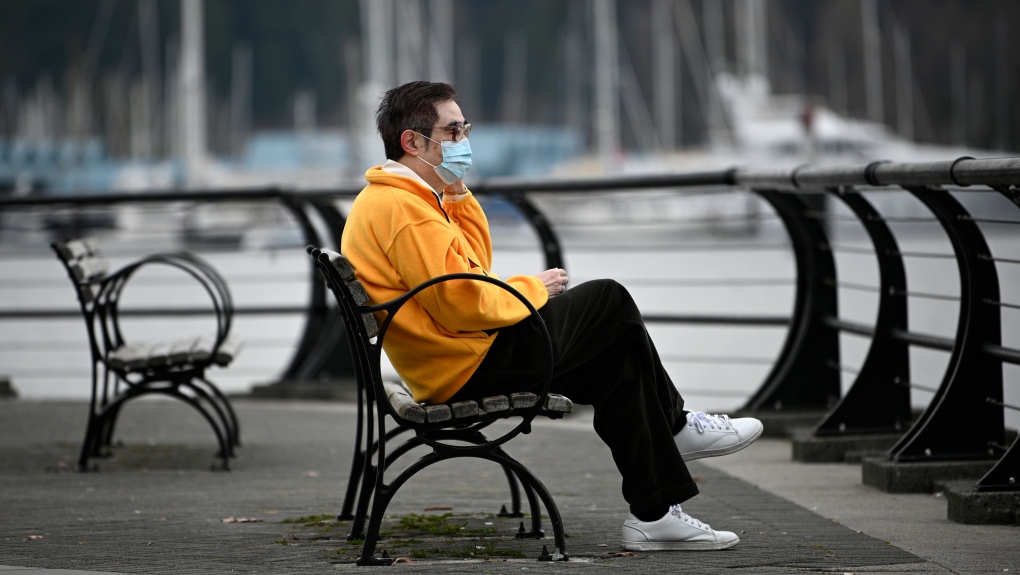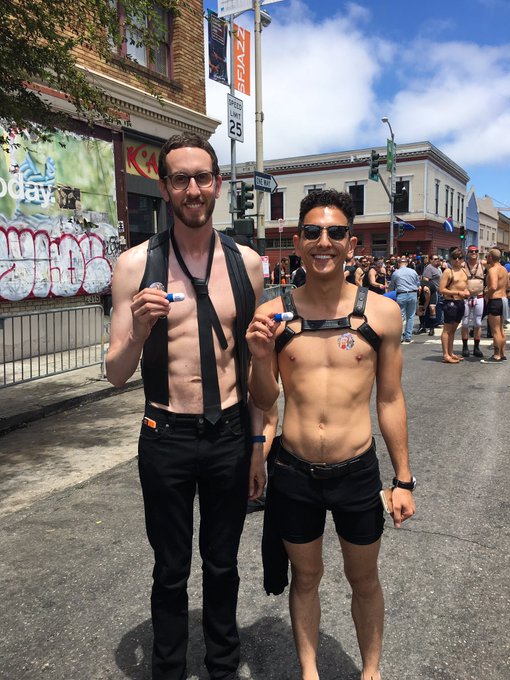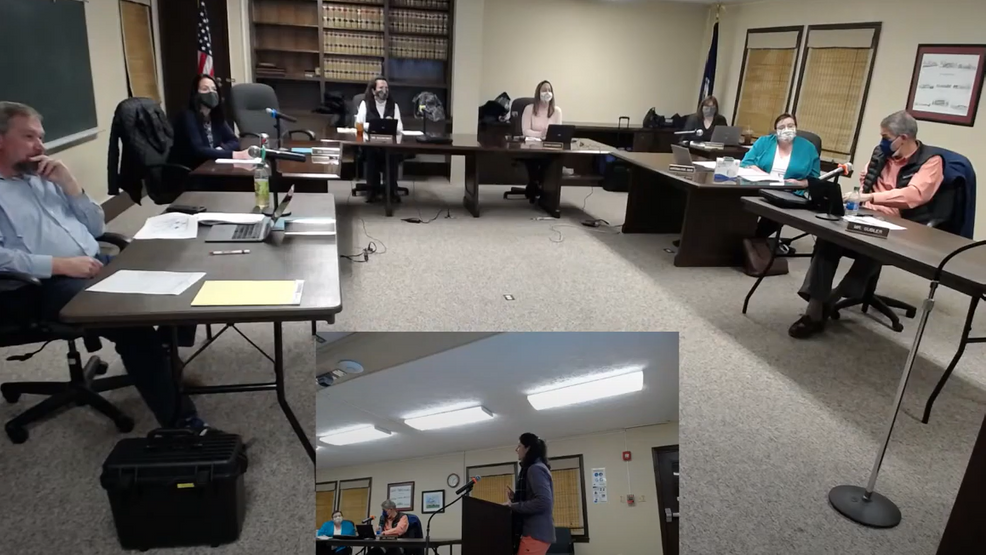makes no difference to me. i stopped paying attention to bonnie henry a year ago. i have been living my life like nothing has even been happening . the only dif has been i have to throw on a mask to go in the grocery store.You prefer this approach@jason73
@SoupCan
@Dave Insurgent ?
For the time being, the province's recommendations largely revolve around self-management, meaning that individuals should be assessing themselves for symptoms on a daily basis. Anyone who has even mild symptoms, such as a sore throat, should stay home until they feel better.
But for those who didn't experience severe symptoms and were never tested, there is no longer a minimum amount of time that they must keep away from the public. Previously, they were told to selfi-isolate for at least five days.
"We cannot eliminate all risk," Henry said. "And I think that's something that we need to understand and accept. As this virus has changed, it's become part of what we will be living with for years to come."
The same layers of protection that have been recommended since early in the pandemic remain important for reducing the spread, Henry said. That includes regular hand-washing, wearing quality masks indoors, and keeping groups small.
People who are at higher risk of severe outcomes from COVID-19, such as the immunocompromised, are also advised to be extra cautious.
Unlike colds and flus, COVID-19 is also still considered dangerous enough to warrant a number of impactful public health measures. Bars and nightclubs remain closed province-wide, while arenas, movie theatres and other venues are still limited to 50 per cent capacity. Organized events such as wedding and funeral receptions are still on pause, and providing proof of vaccination is required for many activities.
While transmission for the Omicron wave is believed to have peaked in B.C. earlier this month, hospitalizations and deaths have yet to subside.

'We cannot eliminate all risk': B.C. starting to manage COVID-19 more like common cold, officials say
British Columbia is beginning to manage COVID-19 more like the common cold, the province's top doctor said Friday while explaining major shifts in the government's approach to the pandemic.bc.ctvnews.ca
Welcome to our Community
Wanting to join the rest of our members? Feel free to Sign Up today.
Sign up
Me and mine are basically the same but we’re all vaxxed. We stay relatively up to date on basics but other than that not too much different. Wife gets to work from home half the time now which is nice. I know 5 people personally who’ve caught the Rona. One was scary bad but rest fought through it ok. Two are in the middle of it now so we’ll see.makes no difference to me. i stopped paying attention to bonnie henry a year ago. i have been living my life like nothing has even been happening . the only dif has been i have to throw on a mask to go in the grocery store.
i know 5 people who have it right now . my kids mom has it and has a cough but its not even bad enough to keep her off her peleton bike . my gfs whole family has it and so far its sniffles and her daughter has a bad cough . i think it is time to start treating it like the flu .obviously if people are sick stay home and stay away from old people and the chronicle sick but there is no need for stricter rules or lockdowns .its also time for the super pro vaxxers to fuck off. if you want to be vaxxed then that is your decision but it doesnt give anybody the right to impose that on others . there are some covid fanatics who want people fired and locked up for not being vaxxed .its time for that shit to stop. it doesnt help when trudeau is on the news calling the unvaxxed racists and misogynists and quebec wont even let the vaxxed out of the house after 9. its time to just get real about itMe and mine are basically the same but we’re all vaxxed. We stay relatively up to date on basics but other than that not too much different. Wife gets to work from home half the time now which is nice. I know 5 people personally who’ve caught the Rona. One was scary bad but rest fought through it ok. Two are in the middle of it now so we’ll see.
Out of all the people I know who had/have it the guy who we thought was on deaths door was a Bjj coach. Mid 30s in great shape. I haven’t ran into any pro or anti fanatics myself but I know we have some in town.i know 5 people who have it right now . my kids mom has it and has a cough but its not even bad enough to keep her off her peleton bike . my gfs whole family has it and so far its sniffles and her daughter has a bad cough . i think it is time to start treating it like the flu .obviously if people are sick stay home and stay away from old people and the chronicle sick but there is no need for stricter rules or lockdowns .its also time for the super pro vaxxers to fuck off. if you want to be vaxxed then that is your decision but it doesnt give anybody the right to impose that on others . there are some covid fanatics who want people fired and locked up for not being vaxxed .its time for that shit to stop. it doesnt help when trudeau is on the news calling the unvaxxed racists and misogynists and quebec wont even let the vaxxed out of the house after 9. its time to just get real about it
people on both sides need to chill and get on with life. this is being used to divide peopleOut of all the people I know who had/have it the guy who we thought was on deaths door was a Bjj coach. Mid 30s in great shape. I haven’t ran into any pro or anti fanatics myself but I know we have some in town.
Easing Sexual predator laws/spreading HIV a misdemeanor no longer a felony weirdo guy back at it again!
Teens could get vaccinated against parents’ wishes under proposed California law

Teens could get vaccinated against parents’ wishes under proposed California law

So they dropping all the extra rules then?You prefer this approach@jason73
@SoupCan
@Dave Insurgent ?
For the time being, the province's recommendations largely revolve around self-management, meaning that individuals should be assessing themselves for symptoms on a daily basis. Anyone who has even mild symptoms, such as a sore throat, should stay home until they feel better.
But for those who didn't experience severe symptoms and were never tested, there is no longer a minimum amount of time that they must keep away from the public. Previously, they were told to selfi-isolate for at least five days.
"We cannot eliminate all risk," Henry said. "And I think that's something that we need to understand and accept. As this virus has changed, it's become part of what we will be living with for years to come."
The same layers of protection that have been recommended since early in the pandemic remain important for reducing the spread, Henry said. That includes regular hand-washing, wearing quality masks indoors, and keeping groups small.
People who are at higher risk of severe outcomes from COVID-19, such as the immunocompromised, are also advised to be extra cautious.
Unlike colds and flus, COVID-19 is also still considered dangerous enough to warrant a number of impactful public health measures. Bars and nightclubs remain closed province-wide, while arenas, movie theatres and other venues are still limited to 50 per cent capacity. Organized events such as wedding and funeral receptions are still on pause, and providing proof of vaccination is required for many activities.
While transmission for the Omicron wave is believed to have peaked in B.C. earlier this month, hospitalizations and deaths have yet to subside.

'We cannot eliminate all risk': B.C. starting to manage COVID-19 more like common cold, officials say
British Columbia is beginning to manage COVID-19 more like the common cold, the province's top doctor said Friday while explaining major shifts in the government's approach to the pandemic.bc.ctvnews.ca
We are jonesing to go on a trip somewhere sunny but haven’t as our toddler would have to quarantine two week returning to Canada as he isn’t vaccinated.. just too much time off work to do a trip them no daycare for 2 additional weeks.
If the rules have been dropped, Hawaii here we come!
Mom charged after threatening to bring loaded guns to Va. school over mask policy

 wset.com
Amelia King was upset about the school mask mandate and said her children would not be wearing masks on Monday and she would "bring every single gun loaded and ready."
wset.com
Amelia King was upset about the school mask mandate and said her children would not be wearing masks on Monday and she would "bring every single gun loaded and ready."
King was cut off because she ran over the three-minute time allotted for comments.
She walked away saying, "I will see you Monday."
Mom charged after threatening to bring loaded guns to Va. school over mask policy
Page County Public Schools in Luray, Virginia will increase police presence at schools Monday after a mother made a perceived threat during a school board meeting Thursday night. Amelia King was upset about the school mask mandate and said her children would not be wearing masks on Monday and...
King was cut off because she ran over the three-minute time allotted for comments.
She walked away saying, "I will see you Monday."
Great speech
I think the Adult speaking at the end might not have even sensed the sarcasm
I think I will send that clip to the Oregon Comment section on the topic of the PERMANANT MASK MANDATE that Oregon Health is considering.
What happens if you don't wear it?makes no difference to me. i stopped paying attention to bonnie henry a year ago. i have been living my life like nothing has even been happening . the only dif has been i have to throw on a mask to go in the grocery store.
We have mandates here but more and more people just don't wear them in the stores.
If they do enforce it I inform them I will be shopping elsewhere and they usually give in on the spot.
i see the odd person without a mask and nothing ever happens to them but i have also seen guys on the news getting choked out by the canadian tire staff and people getting arrested so they do and they dont enforce it depending on which way the wind blows . i mean literally every time i am in a grocery store there is usuallly one guy going about his business with no mask on . a lot of stores would just stop them at the door though but i was probably never going to those stores anywaysWhat happens if you don't wear it?
We have mandates here but more and more people just don't wear them in the stores.
If they do enforce it I inform them I will be shopping elsewhere and they usually give in on the spot.
I've kinda felt this from the start, it comes down to an individual responsibility but unfortunately we're not always in a position to make the best choices.You prefer this approach@jason73
@SoupCan
@Dave Insurgent ?
For the time being, the province's recommendations largely revolve around self-management, meaning that individuals should be assessing themselves for symptoms on a daily basis. Anyone who has even mild symptoms, such as a sore throat, should stay home until they feel better.
But for those who didn't experience severe symptoms and were never tested, there is no longer a minimum amount of time that they must keep away from the public. Previously, they were told to selfi-isolate for at least five days.
"We cannot eliminate all risk," Henry said. "And I think that's something that we need to understand and accept. As this virus has changed, it's become part of what we will be living with for years to come."
The same layers of protection that have been recommended since early in the pandemic remain important for reducing the spread, Henry said. That includes regular hand-washing, wearing quality masks indoors, and keeping groups small.
People who are at higher risk of severe outcomes from COVID-19, such as the immunocompromised, are also advised to be extra cautious.
Unlike colds and flus, COVID-19 is also still considered dangerous enough to warrant a number of impactful public health measures. Bars and nightclubs remain closed province-wide, while arenas, movie theatres and other venues are still limited to 50 per cent capacity. Organized events such as wedding and funeral receptions are still on pause, and providing proof of vaccination is required for many activities.
While transmission for the Omicron wave is believed to have peaked in B.C. earlier this month, hospitalizations and deaths have yet to subside.

'We cannot eliminate all risk': B.C. starting to manage COVID-19 more like common cold, officials say
British Columbia is beginning to manage COVID-19 more like the common cold, the province's top doctor said Friday while explaining major shifts in the government's approach to the pandemic.bc.ctvnews.ca
Like going to work sick, people still did and do because the can't afford to miss a days pay. I understand some of the health measures had to be put into place but I feel government could have spent better. Especially in Canada, we spent million towards mobile covid hospitals that weren't delivered and the few that were never been used. We could have spent that money paying for people to take those sick days to slow or stop the spread.
There is a lot of logistics that I don't know about and don't understand but to me the approach should have always been prop up the health care rather than protect it. People shouldn't be shitting on each other about not "doing their part" but rather getting answers as to why our government annually made decades of budget cuts to our health care systems
Not like that at all
I spend thousands of dollars at these stores per year, they prefer the $$$ over an ineffective hygiene theater measure.
It started out as just me and a few others not wearing them.i see the odd person without a mask and nothing ever happens to them but i have also seen guys on the news getting choked out by the canadian tire staff and people getting arrested so they do and they dont enforce it depending on which way the wind blows . i mean literally every time i am in a grocery store there is usuallly one guy going about his business with no mask on . a lot of stores would just stop them at the door though but i was probably never going to those stores anyways
It is progressing each week from what I can see, more people going without and the number of people wearing them on chin or below nose is getting to be a decent percentage.
Here not wearing a mask means your a "trumpster", I know people that wear them only because they don't want to be mistaken for the wrong political leaning....completely ridiculous but true
Most of the newest non compliers are old people who are over it, not interested in wearing a mask the rest of their life I reckon.
I think you already know that the city I live near is a wanna be portland heavy blue location
I'm guessing the monkeys won't do well in a Pennsylvania winter
Will probably die or end up near some manmade warmth
Reads like you spend a lot of time thinking about Covid.Most of the newest non compliers are old people who are over it, not interested in wearing a mask the rest of their life I reckon.
California is so fucking backwards.Easing Sexual predator laws/spreading HIV a misdemeanor no longer a felony weirdo guy back at it again!
Teens could get vaccinated against parents’ wishes under proposed California law

She should put the mask back on to protect those around her.
Not just from covid though.






